
116th Edition: September 2023
Key points:
- Indonesian trade to resume after a short suspension due to Australian cattle being detected with LSD in Indonesia.
- Australia’s northern live export steer and bull trade reliance on Indonesia exposed.
- China economy continues to look vulnerable threatening the region and trade.
Regional Livestock Movements and Trends
Another eventful period in South East Asian trading for Australia with the effective suspension and then resumption of the live export trade to Indonesia and huge relief to many northern cattle producers. As mentioned in my article last week, I see this series of events as a wake up call for our position as a trading partner with Indonesia. Dr Beth Cookson and her team have demonstrated the importance of face to face engagement and did a great job at finding a compromise to resume the trade. The issue was resolved within two days of Australian officials landing in Indonesia, one week before the 12th September deadline given by Indonesia’s Agriculture Quarantine Agency (Barantan) expired. This date was not widely reported, but no doubt was in the minds of Australian official when deciding to escalate the issue. Both sides recognised the importance of the trade of cattle for farmers in the north, and for Indonesian food security, of which beef is a major consideration in Indonesia.
The last month has highlighted the reliance of the northern cattle industry on Indonesia. Indonesia represents approximately 75% of the demand for our northern live trade. We will never know the true cost of the trade interruption over the last month because of the lack of transparent cattle price reporting in the north, but anecdotal reports of prices well below $2/kg for second grade cattle suggest some producers caught with cattle to move and a near non-existent market had to take a substantial hit.
In other markets we continue to see a general decline in live cattle pricing with the Philippines as the notable exemption as our reporting is for local cattle. Australian cattle in Vietnam are trading at a discount to local cattle but volumes are limited by a supply chain which has lost significant capacity in recent years.
We need to wait to see what the added cost and specific terms of the negotiation mean for producers, exporters, and importers, with some testing and oversight in Australia still required from the Indonesian side. This will undoubtably be passed onto exporters who will pass it down the supply chain. While it appears that the trade will resume, we shouldn’t forget that the import demand and requirement for Australian cattle is also depressed due to a reduction in demand for meat from animals processed the night before. It is less likely that this will ever return to pre-COVID volumes.
Indonesia: Steers AUD $4.89 / kg live weight (IDR 9,814.02 = 1 AUD)
Despite the dynamics in Indonesian international trade and biosecurity on cattle and beef, the price of beef in Indonesian is stable. The carcass price/kg is around 97,000/kg in the cities in Java Island. In the regions of Jakarta and West Java, live cattle prices continued to decline. The price for Australian steers is between 47,000-49,000,000 IDR per kilogram live weight.
The slaughter numbers per day have also dropped in the last month, but we expect these to be higher toward the end of September with a national holiday for Muslims in Indonesia (Prophet Muhammad birthday). It is unlikely that the slaughter volumes relate to the issues around LSD, and more likely because there are fewer celebrations, ceremonies, or festivals within the month of Safar (based on Islamic/Hijriah Calendar). Indonesia is known for its cultural ceremonies (read holidays) and festivals which are mostly around the Islamic calendar. These activities usually involve food sharing within communities, which contributes to the increasing beef demand in Indonesian market during festival times.
Revised price trends in the Indonesian meat trade. The drop in July corresponds to Idul Adha (Festival of sacrifice) where there is a preference for local slaughter.
The slow down in trade has resulted in feedlot inventories dropping, though slow slaughter volumes have dampened the effect of this. Indonesian importers seem to have grown accustomed to the disruptions and so prices and buying behaviours do not have the same reactivity as we see in some of the other countries in the region.
The prices of beef in both supermarkets and wet markets have remained steady without any notable fluctuations across the islands of Java and Sumatra.
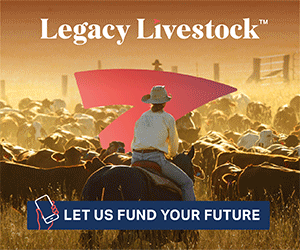 Indonesia imports roughly 300,000 tons of beef annually to bridge the production-consumption gap and sourcing affordable and reliable sources of beef is a priority for the government. Local production in Indonesia remains a priority, but Indonesia continues to explore opportunities for cattle and meat in Brazil and now South Africa. The Indonesian Government’s plan to import 50,000 cattle from South Africa into Indonesia has been generating some controversy recently. Sudin, Chairman of Commission IV in Indonesia’s House of Representatives, expressed concerns over the ongoing threat from Foot and Mouth Disease (FMD) from South Africa. Sudin’s critique drew from information provided by the Ministry of Agriculture, which highlighted vaccine shortages in Indonesia which would challenge Indonesia’s ability to manage the disease long term. FMD programs continue with one known national program continuing until December when funding will run out. Provincial and regional veterinary staff continue to vaccinate cattle, but there has been a reduction in coordinated programs over recent months.
Indonesia imports roughly 300,000 tons of beef annually to bridge the production-consumption gap and sourcing affordable and reliable sources of beef is a priority for the government. Local production in Indonesia remains a priority, but Indonesia continues to explore opportunities for cattle and meat in Brazil and now South Africa. The Indonesian Government’s plan to import 50,000 cattle from South Africa into Indonesia has been generating some controversy recently. Sudin, Chairman of Commission IV in Indonesia’s House of Representatives, expressed concerns over the ongoing threat from Foot and Mouth Disease (FMD) from South Africa. Sudin’s critique drew from information provided by the Ministry of Agriculture, which highlighted vaccine shortages in Indonesia which would challenge Indonesia’s ability to manage the disease long term. FMD programs continue with one known national program continuing until December when funding will run out. Provincial and regional veterinary staff continue to vaccinate cattle, but there has been a reduction in coordinated programs over recent months.
Vietnam : Steers AUD $4.93 / kg live weight (VND15,427 = 1AUD)
Price for Australian cattle into abattoirs in Vietnam have dropped over the last month, with Australian cattle now 5-7% cheaper than local cattle or cattle moving over the border from Thailand and Laos. Prices for steers dropped to VND 75,000-77,000 /kg liveweight and bulls to VND 76,000-78,500 /kg liveweight. Hot beef sold into wet markets is still wholesaling at around VND 205,000 (AUD $13).
Cattle shipments continue to enter the market but at this stage it does not appear that the demand in Vietnam was high enough or the impact from Indonesia was long enough for Vietnamese importers to seize the opportunity. Import figures over the next month will tell that story.
China
Chinese prices have been updated since the last report based off more reliable official figures, thank you for one of the readers for noting the price changes that had not been accurately reported. China’s economic indicators have seen some fluctuations recently and it’s crucial to understand these nuances to navigate the export landscape effectively.
In regard to consumer price movements, in August, the Consumer Price Index (CPI) in China, which measures the average price changes of consumer goods and services, experienced a slight uptick, rising by 0.1% from the previous year. This was a shift from July, when it had declined by 0.3%. The Chinese government has set a goal to maintain the CPI growth around 3% for 2023 which looks ambitious. This indicates that while there are price fluctuations, the government is actively trying to manage and stabilize consumer prices.
For Australian beef exporters, the Producer Price Index (PPI) is also of significance. It reflects the average price change at the factory level. China’s PPI has been on a declining trend for 11 consecutive months, with a reduction of 3% in August, less than the 4.4% drop in July. Notably, food prices in China dropped by 1.7% during this period, potentially impacting the pricing strategy for beef exporters. This is reflected in the drop in beef prices to China that are best seen in the below graph.
Risks exist in the Chinese market with a significant drop in official beef prices since June
Expert opinions vary on China’s economic outlook and I do not profess to be a China expert. Zhou Hao, a prominent economist, believes that while there are signs of inflation stabilization, the demand for goods remains subdued. Several analysts have cautioned about prolonged “low inflation”, largely due to weak demand. Conversely, Beijing dismisses the idea that the country is entering a deflationary period. Another organization, the China International Capital Corporation (CICC), pointed out a reduced consumer spending post the summer holidays, though there was a slight uptick in service-related expenses.
 Whatever the reality, the broader decline in food prices, as indicated by the 1.7% drop, suggests a potential challenge for beef exporters. With weak domestic demand within China and a slowing external demand, it’s crucial for Australian beef exporters to be agile, monitor the market closely, and adjust strategies accordingly.
Whatever the reality, the broader decline in food prices, as indicated by the 1.7% drop, suggests a potential challenge for beef exporters. With weak domestic demand within China and a slowing external demand, it’s crucial for Australian beef exporters to be agile, monitor the market closely, and adjust strategies accordingly.
This is compounded by the growth in productivity in both the sheep and cattle industry capability in China’s massive domestic beef and sheep meat industry. There is increasing talks that companies that are current importers of large volumes of products are shifting to products processed locally. In some cases this local product challenges the quality of imported products, including from Australia.
Philippines: Slaughter Steers AUD $3.79 / kg liveweight (P. 36.25 = 1AUD)
Wet market and supermarket beef has remained constant at around P. 560/kg and P. 600/kg retrospectively for beef knuckle. Slaughter steer prices remain between P.130-145 /kg liveweight in Mindanao and hot carcass meat is around P.260 /kg. Note that prices are for local cattle bred and traded in Mindanao and not for Australian imported cattle.
The Philippines is re-emerging as a small alternative market for live cattle, with volumes doubling in the last 12 months largely due to consistent and closed loop supply chains. The Philippines has a relatively well-developed meat production and processing sector (for the region) with better government regulation over small backyard abattoirs than the region and better support from industry groups and government for higher quality processing.
But the biggest shift in the Philippines is the relative political and economic stability in the last few months.
Thailand Steers AUD $3.95(Tb 22.74 = 1 AUD)
Local steer prices went down to Tb 90/kg ($3.95 AUD). Cheaper local cattle in Thailand, many of which will be Myanmar cattle being traded through to Vietnam, probably explains the decline in Vietnam live prices.
Feeder Steers Darwin $3.00, Townsville $2.80
The Indonesia trade re-opening in the last week days has no doubt seen a busy time for live export buyers and producers, as they look to get cattle moving quickly, and rationalise pricing.
Prices out of Townsville with brahman feeder steers sought at $2.60 and bulls to $2.70. Again, we would expect to see some movement here in the coming weeks as the Indonesia trade swings back in to action.
2023 Year to July figures for sea freight across Asia for our different ports from the DAFF website. Data is the same as last month as data has not been updated at time of printing.
| NT | QLD | VIC | WA | Grand Total | |
| Brunei Darussalam | 2,834 | 2,834 | |||
| China | 40,855 | 4,464 | 45,319 | ||
| Indonesia | 113,033 | 56,595 | 1,250 | 30,298 | 201,176 |
| Malaysia | 1,554 | 1,554 | |||
| Philippines | 5,167 | 3,811 | 5,652 | 14,630 | |
| Sarawak | 1,381 | 1,381 | |||
| Thailand | 1,674 | 1,674 | |||
| Vietnam | 5,986 | 39,292 | 20,207 | 65,485 | |
| Grand Total | 128,574 | 98,942 | 45,916 | 60,621 | 334,053 |
Year to July for sea freight comparison across Asian markets from DAFF figures.
| 2018 | 2019 | 2020 | 2021 | 2022 | 2023 | Grand Total | |
| Brunei Darussalam | 2,489 | 4,040 | 4,519 | 11,838 | 5,416 | 2,834 | 31,136 |
| China | 58,156 | 76,718 | 71,586 | 58,348 | 79,131 | 45,319 | 389,258 |
| Indonesia | 293,222 | 376,516 | 298,024 | 263,771 | 186,076 | 201,176 | 1,618,785 |
| Malaysia | 14,173 | 13,944 | 13,985 | 13,679 | 2,180 | 1,554 | 59,515 |
| Philippines | 7,430 | 11,470 | 9,324 | 13,231 | 0 | 14,630 | 56,085 |
| Sarawak | 1,110 | 2,227 | 1,000 | 1,700 | 748 | 1,381 | 8,166 |
| Thailand | 800 | 0 | 1,736 | 0 | 1,772 | 1,674 | 5,982 |
| Vietnam | 114,420 | 143,027 | 184,611 | 124,847 | 34,004 | 65,485 | 666,394 |
| Grand Total | 491,800 | 627,942 | 584,785 | 487,414 | 309,327 | 334,053 |

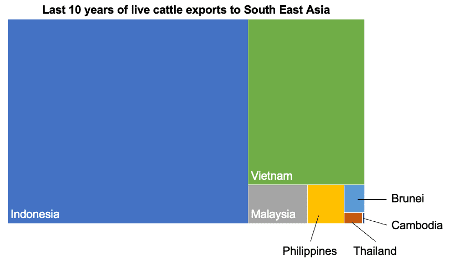

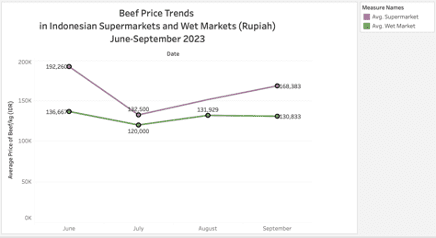
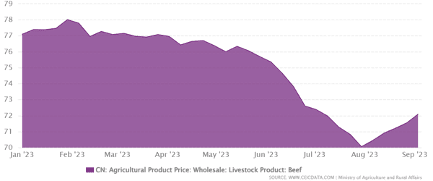
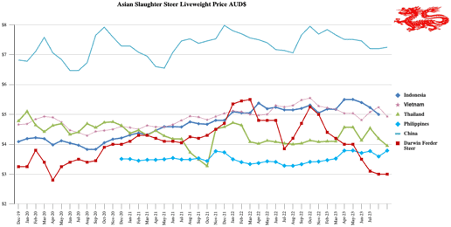


HAVE YOUR SAY